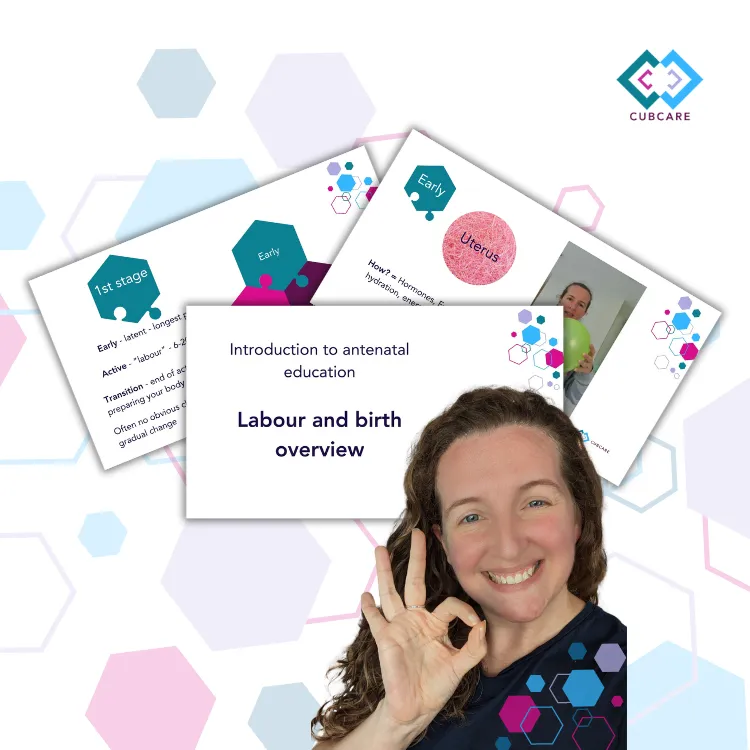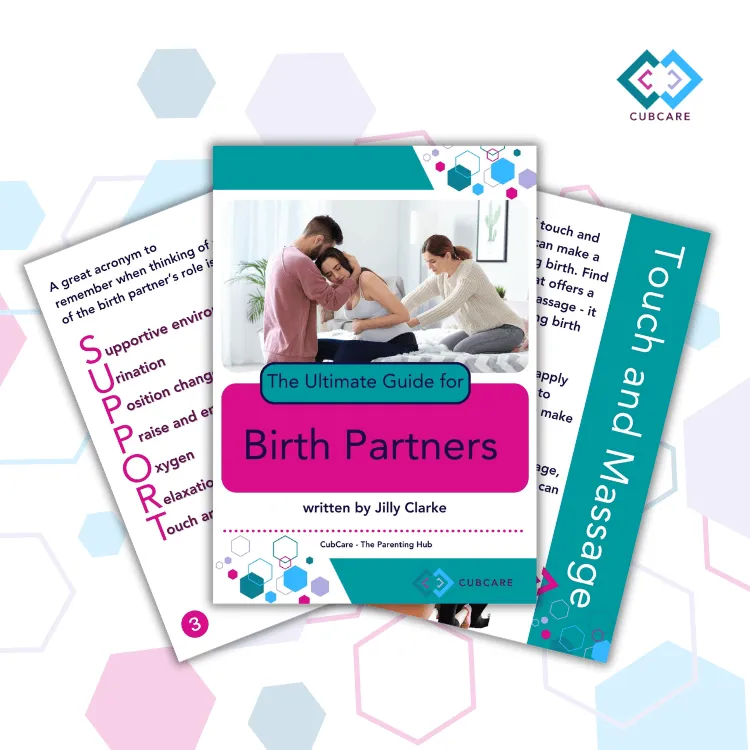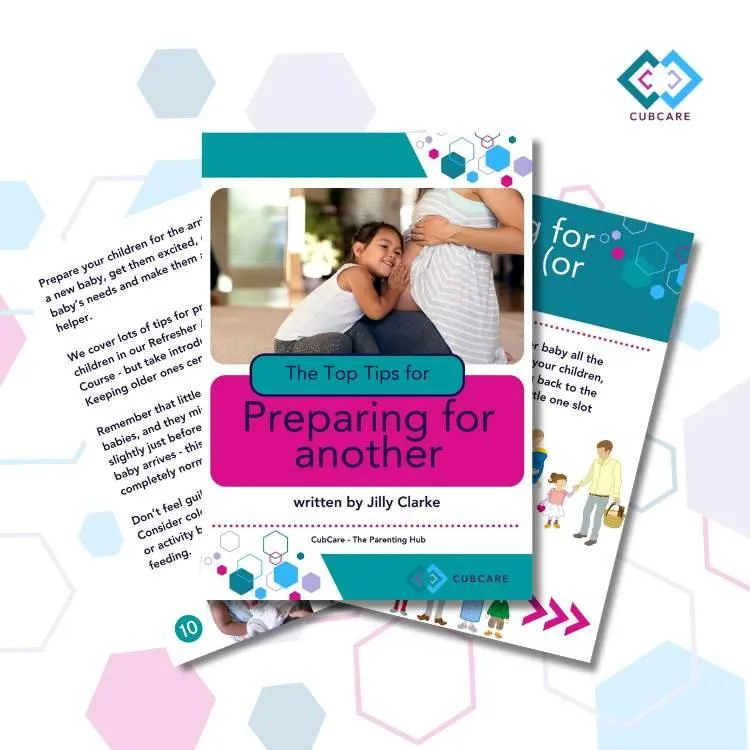We're an award winning Antenatal and Postnatal Education Platform 2025!
(read more here)
CubCare blogs.
From early pregnancy to newborn development.
Advice to help through pregnancy, birth and childhood.
BLOG

Antenatal appointments: what to ask your midwife or doctor and how to feel prepared
"The way your healthcare provider answers these questions can be very telling.
Evidence-based guidance is important, overly rigid, positive towards the NHS Trust or dismissive responses can be a red flag.
If you're told policies are non-negotiable, or blanket policies (whether positive or negative) are in place it’s worth exploring further. Policies exist, but your individual circumstances should always be considered and worked with." - Jilly Clarke
What questions to ask at Antenatal Appointments: essential questions for UK Parents in 2025
Heading to an antenatal appointment soon? We expected it to be a reassuring check-in where everything’s explained and you leave feeling confident, knowledgeable and uplifted. But often, it doesn’t quite work like that and we end up feeling deflated, or like it was pointless.
Appointments can be quick, with most of the time spent on routine checks like urine samples and bump measurements. There isn't a lot of time devoted to asking questions, and even less to providing education and support. And if something unexpected pops up - like high blood pressure or a test result that needs investigating - it can feel overwhelming.
That’s why it helps to come prepared. Knowing what to ask and understanding how to make decisions can make a real difference. And the good news? You don’t need to know it all. You just need a few simple tools to guide you.

Why asking your midwife questions, matters.
Your midwife or doctor is there to help, but they won’t always cover everything. Research shows that when we feel listened to, informed, and part of the decision-making process, we’re more likely to feel positive about our care.
And that’s the thing; antenatal care is your care. It’s important to ask questions, seek clarification, and make sure you fully understand what’s going on.
That’s where tools like BRAINS come in.

Using BRAINS to make informed decisions at antenatal appointments
Ever feel like decisions are being made around you, not with you? That’s where the BRAINS tool can help. It’s a simple way to check in with yourself and your healthcare provider when something is suggested.
Here’s how it works:
Benefits – What are the benefits?
Risks – Are there any risks?
Alternatives – What other options do I have?
Instinct – What’s my gut telling me?
Nothing – What if we wait and do nothing right now?
Second opinion – Can I get another perspective or take time to decide?
Research has shown that using structured decision-making tools like this leads to better health outcomes and greater confidence in care choices. A 2022 study even showed that decision-support techniques can improve maternal health literacy and lead to better postpartum experiences. (BMC Pregnancy and Childbirth, 2022)
So next time you’re at an appointment and faced with a decision, try using BRAINS.
It can give you space to pause, think, and make choices that feel right for you.
Thought-provoking questions to ask your midwife at your antenatal appointment
If you’ve done some research and want to dig a little deeper, these questions will help you understand your care options and assess how well-supported you are:
Your health and wellbeing
Are there any signs or symptoms I should be particularly aware of between now and my next appointment?
What are the signs that labour could start early, and how should I prepare for that possibility?
How can I tell the difference between normal pregnancy discomfort and something that requires medical attention?
What are the best options for managing back pain, leg cramps, or other discomforts?
How can I ensure I’m staying hydrated and nourishing my body properly?
Birth preparation and planning
Should I be thinking about my birth preferences now, or is it too early to start that conversation?
What are the most important things I can focus on when planning for the birth?
How can I prepare both mentally and physically for labour?
Are there any particular exercises or stretches you recommend at this stage of pregnancy?
Can you explain my options for pain relief during labour and when I should consider them?
Partner involvement and support
How can my partner support me as we approach the birth experience?
Are there any antenatal classes we can attend together?
How can I ensure my partner understands their role during labour?
Assessing your maternity care
What tests or screenings are coming up, and what information will they provide?
How do you support parents who have specific birth preferences?
Are there any restrictions around how I give birth in this NHS trust?
What are my options if I’m not comfortable with a suggested course of action?
How open is the team here to discussing alternatives if I want to explore different care options?

Spotting red flags in your maternity care
The way your healthcare provider answers these questions can be very telling.
Evidence-based guidance is important, overly rigid, positive towards the NHS Trust or dismissive responses can be a red flag.
If you're told policies are non-negotiable, or blanket policies (whether positive or negative) are in place it’s worth exploring further. Policies exist, but your individual circumstances should always be considered and worked with.
If your concerns are brushed off, this could indicate a lack of personalised care. You should feel heard, not dismissed.
If interventions are presented as the only choice, that’s rarely the case. Every decision has alternatives, and it’s your right to explore them.
On the flip side, supportive care often involves conversations that include:
Shared decision-making — providers explain your options, put you in charge of decision-making and respect your preferences without coercion and repeadly asking if you are sure of your decision.
Evidence-based recommendations — you’re given clear, factual information on the benefits and risks of any suggestions.
Encouragement to ask questions — your input is valued, not discouraged.
Know your rights for antenatal appointments
In the UK, you’re entitled to paid time off for antenatal care. This includes midwife and GP appointments, scans, and any recommended parent education classes.
Your partner is entitled to unpaid time off for two antenatal appointments. But some workplaces offer more flexibility, and it’s always worth checking. Having them there can make a big difference.
If you’re unsure about your rights, chat with your HR team or employer.
Feeling confident in your antenatal and maternity care
When you’re informed, you’re empowered. Knowing what to ask, using tools like BRAINS, and understanding your rights can help you navigate antenatal care with confidence.
And if you’re looking for even more support, we’ve got you covered. Our CubCare antenatal courses are designed to answer your questions, ease any worries, and leave you feeling prepared for whatever’s ahead.
Because feeling ready for your baby’s arrival? That’s something every parent deserves.
Want to feel confident and in control?
That's why we have our Antenatal Course (both in person and online), Refresher Antenatal Course (both in person and online), and our Birth Partner course so that everybody can get knowledgeable and confident for birth.
Refresher Antenatal Course in person
Refresher Antenatal Course online
Birth Partner course (included in our Antenatal course)
Antenatal Course in person
Antenatal Course online
Easily navigate to our most popular Blog categories
Download our Freebies

Labour and Birth
Watch our introduction to antenatal education webinar, our labour and birth overview - to start your antenatal education journey. Understanding the process, and what you can do to influence it.

Pregnancy Planner
Free Pregnancy Planner to help you prepare for a little one. Prepare your body, your mind, your finances and your home. Get organised, feel good and prepare for an active, positive birth.

Birth Partner Guide
Your ultimate guide to being the best birth partner during pregnancy, birth and recovery. Learn what you need to do, and what you need to learn to be the best birth partner possible.

Expecting Again Guide
Your ultimate guide to preparing for another birth and an extra baby. Our top tips for navigating pregnancy and birth, and helping your older ones to transition into their new role as a big sibling.
Based in Welwyn Hatfield, offering local pregnancy support and doula services across Hertfordshire: St Albans, Hatfield, Welwyn Garden City, Potters Bar, Stevenage, Harpenden, Hitchin, Barnet, Mill Hill and surrounding areas.
Online antenatal and postnatal education available UK-wide.
© Copyright 2025 CubCare The Parenting Hub. CubCare is operated by The Birth and Baby Company Ltd. Company No. 15655287
Privacy Policy | Terms & Conditions | Medical Disclaimer | Inclusivity and Accessibility

